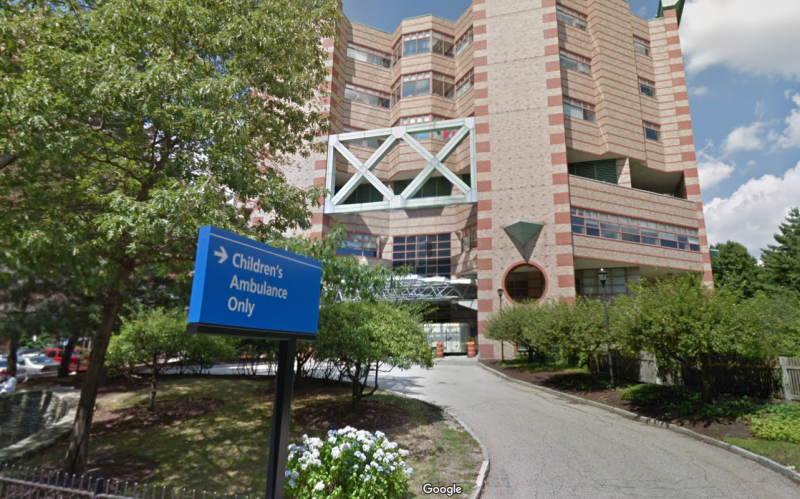Health
Severe Maternal Morbidity Rate Nearly Doubled In Massachusetts

By Alison Kuznitz
The volume of people experiencing complications from pregnancy or delivery in Massachusetts nearly doubled from 2011 to 2020, according to new data released Wednesday by the Department of Public Health.
Episodes of several maternal morbidity (SMM) can lead to short- or long-term health problems — including eclampsia, acute kidney failure and heart attacks — and they might trigger live-saving procedures like hysterectomies, according to the data brief.
The report examined 678,382 deliveries, including both live births and fetal deaths, among 483,699 Massachusetts residents from 2011 to 2020. The SMM rate rose from 52 per 10,000 deliveries to 100 per 10,000 deliveries in that time frame, said Dana Bernson, director of special analytic projects at DPH’s Office of Population Health.
“Black non-Hispanic birthing people consistently have the highest SMM rates over the 10-year period, and the inequities are increasing,” Bernson said during a virtual Public Health Council meeting Wednesday.
While the words “mother,” “women” and “maternity” are widely used, “birthing people” is the preferred inclusive term for an individual who gives birth to a newborn, according to a style guide published by the Massachusetts Health Policy Commission this month. The term “includes but is not limited to cis-women, transgender men, and non-binary people,” the style guide states.
Gender-specific language can still be used in “relevant” cases, such as discussing pregnancy and birth outcomes disparities “that are specifically related to misogyny and sexism,” the style guide states.
Bernson said the new data underscore disparities that are statistically significant among people of color, with SMM rates among Black non-Hispanic birthing people 2.3 times higher than their white counterparts. The SMM rates among Asian/Pacific Islander non-Hispanic and Hispanic birthing people were 1.2 times higher than their white counterparts, Bernson said.
Bernson said SMM rates were also higher for vulnerable individuals, including those experiencing opioid use disorder or certain mental health conditions, or who have a history of homelessness.
The data analysis captured disparities for people with disabilities, as well, especially higher rates of SMM among people with intellectual, vision or mobility disabilities, Bernson said.
“It’s critical to acknowledge the role of social factoring in driving rates of SMM among birthing people with disabilities,” Bernson said. “These factors include active and passive denial of medical care; inequitable access to social determinants of health, such as housing and proper nutrition; and higher rates of other risk factors, such as smoking, stress and clinically unwarranted obstetric intervention.”
Dr. Robbie Goldstein, the DPH commissioner, called the data “sobering.”
The department is slated to release more data this week from the Pregnancy Risk Assessment Monitoring System, which Goldstein said captures attitudes and experiences from parents before, during and after pregnancies. Black non-Hispanic respondents were 16 times more likely to report feeling stressed and 14 times more likely to report feeling upset due to treatment based on their race or ethnic background compared to white respondents, Goldstein said of pending survey data from 2021.
“It is really racism, not race, that is driving most of these inequities,” Goldstein said at the Public Health Council meeting. “And our work needs to be focused on addressing the racism within the institutions and within our public health infrastructure.”
The new report “shines a painful light on what we’ve known to be true for a while – women of color are not receiving the high-quality maternal health care that they need and deserve,” said Lt. Gov. Kim Driscoll.
“Massachusetts has the best health care system in the country, but this report shows that there is much more work that we need to do to address racial and gender inequities in health care. It is essential that everyone has access to comprehensive, high-quality and inclusive maternal health care,” said Gov. Maura Healey. “We can and must do better for mothers, for kids and for families – and our administration is committed to doing just that.”
Ensuring MassHealth coverage for doula care could tackle racial disparities, particularly as trained professionals offer culturally competent care and advocate for their clients during labor and delivery, according to a recommendation from the Special Commission on Racial Inequities in Maternal Health.
In a May 2022 report, the commission said doula services could “empower” pregnant people to advocate for their needs, lower the rates of preterm births and reduce the risk of postpartum depression, among other benefits.
But for now, most pregnant people cannot afford doulas — whose services can range from $800 to $2,000 — due to limited insurance coverage, the report states.
DPH has created an advisory group to help prepare for the potential passage of legislation that would create a pathway for certifying doulas, said Dr. Hafsatou Diop, director of DPH’s Division of Maternal and Child Health Research and Analysis.
“We are really working hard to bring doulas as part of a care team, but we are sort of hindered right now by the lack of legislation,” Diop said at the council meeting. “As soon as we have legislation, we will begin having those conversations with the providers; we are already talking to the doulas and they’re onboard, they’re willing to be part of the care. We are working diligently to bring them on board.”
In response to the new data, the advocacy group Reproductive Equity Now called on Beacon Hill lawmakers to pass Sen. Liz Miranda’s omnibus bill (S 1415) that would expand access to midwifery, doulas services and out-of-hospital birthing options, among measures to overhaul the maternal health care system.
“As extremists continue to wage attacks on maternal health nationwide, Massachusetts has a responsibility to step up, improve birthing outcomes, and eliminate racial disparities for birthing people,” Reproductive Equity Now President Rebecca Hart Holder said. “These statistics are horrifying, and we must remember that these data points are more than numbers. We’re dealing with people’s lives and livelihoods and we cannot wait to act any longer.”







Buzz Words abound
July 12, 2023 at 7:35 pm
” Birthing people ” What a complete insult to women. Will Healy be chastised for mot using inclusive language?